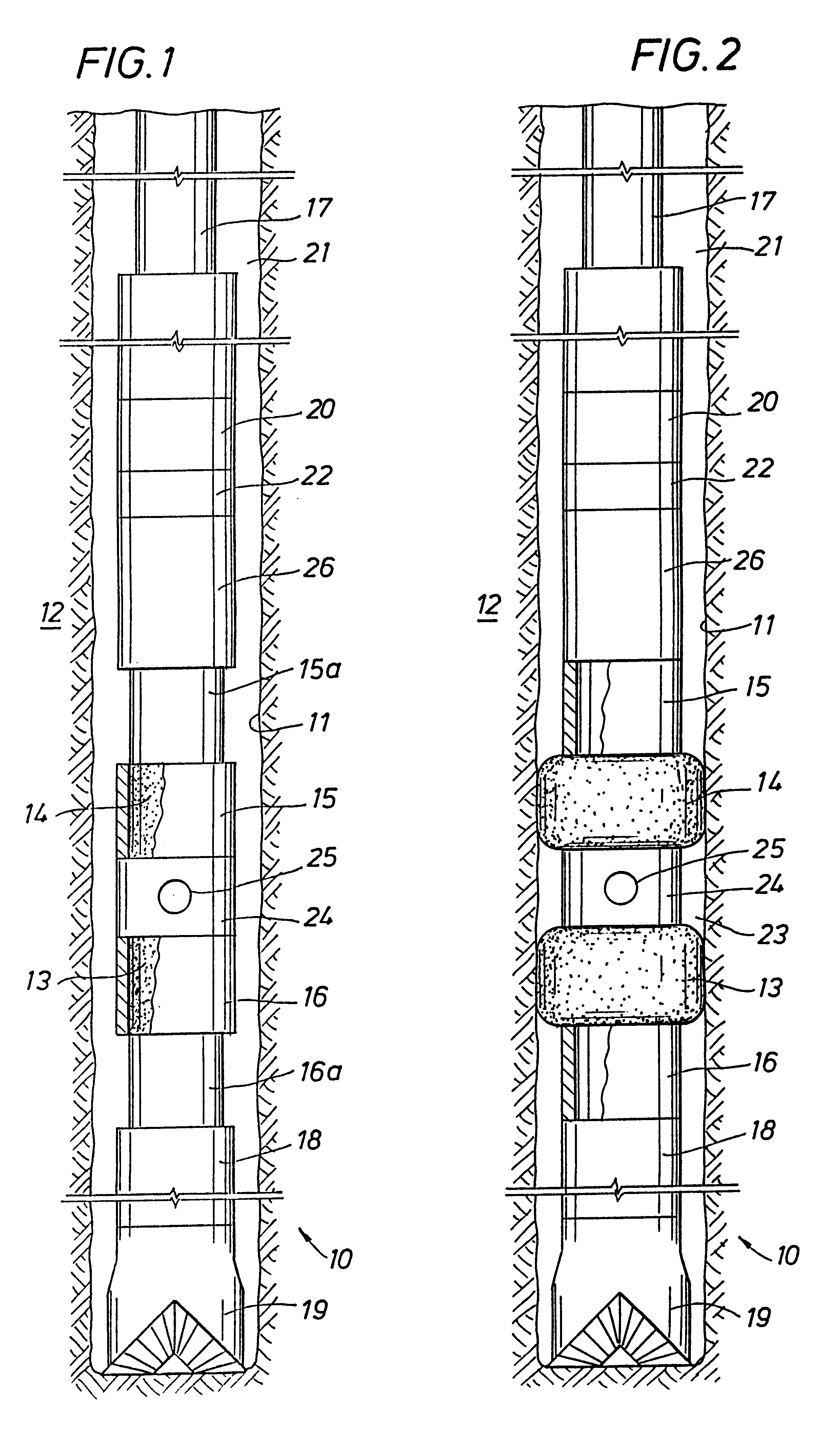Subsurface measurement apparatus, system, and process for improved well drilling, control, and production
a measurement apparatus and subsurface technology, applied in the field of well drilling and completion, can solve the problems of large discrepancies between measured and calculated pressures, poor application of hydraulic models, and high effective mud weight that has the potential to fracture the formation
- Summary
- Abstract
- Description
- Claims
- Application Information
AI Technical Summary
Benefits of technology
Problems solved by technology
Method used
Image
Examples
Embodiment Construction
Enhanced Leak-off Test (LOT) and Pressure Integrity Test (PIT) and Formation Integrity Test (FIT) Using Direct Pressure Measurement
In a typical LOT, the start of each well section, after casing and cementing the wellbore, a short interval (approximately 3 m) of new hole is drilled below the casing shoe. The well is then shut in and the wellbore pressured up by pumping at a slow rate until the wellbore strength is exceeded and mud starts to leak off (LOT) or until a specified pressure is achieved (PIT / FIT). These pressures are monitored from the well surface. This test is used to verify the casing cement integrity, the kick tolerance for the next section, and an estimate of the openhole fracture strength.
Because of the small margins between pore or collapse pressure and fracture pressure in many HPHT, deepwater, and extended reach / horizontal wells, the LOT has become a critical measure of the formation strength and is used as a guide to the maximum allowable circulating pressure in t...
PUM
 Login to View More
Login to View More Abstract
Description
Claims
Application Information
 Login to View More
Login to View More - R&D
- Intellectual Property
- Life Sciences
- Materials
- Tech Scout
- Unparalleled Data Quality
- Higher Quality Content
- 60% Fewer Hallucinations
Browse by: Latest US Patents, China's latest patents, Technical Efficacy Thesaurus, Application Domain, Technology Topic, Popular Technical Reports.
© 2025 PatSnap. All rights reserved.Legal|Privacy policy|Modern Slavery Act Transparency Statement|Sitemap|About US| Contact US: help@patsnap.com


